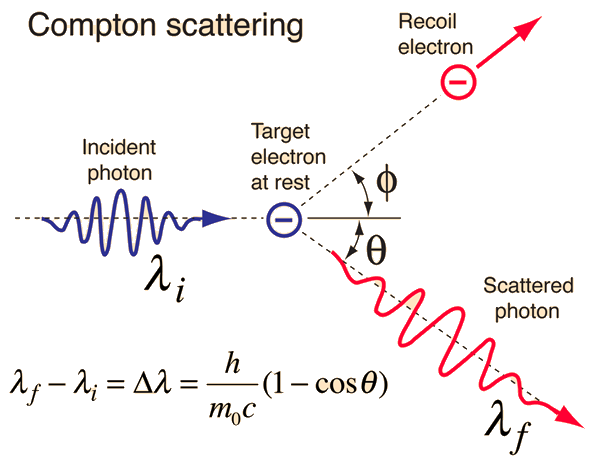To: PatrickHenry
PatrickHenry says: "...
because velocity and mass of the photon aren't going to change, the energy shows up as wavelength."
Close, but keeping in mind that the photon has no real mass, let's rewrite your statement like this:
"Because velocity of the photon and Planck's constant aren't going to change, the momentum (change) shows up as wavelength (change)."
--Boot Hill
To: Boot Hill
Gotcha. Thanks.
66 posted on
11/22/2003 4:01:08 PM PST by
PatrickHenry
(Hic amor, haec patria est.)
To: Boot Hill
"Because velocity of the photon and Planck's constant aren't going to change, the momentum (change) shows up as wavelength (change)."Looks like you brought em in kicking and screaming. Good job.
p1 = h*f1/c
p2 = h*f2/c
Dp = h*Df/c
Df = Dp*c/h
Or if you prefer
Dl = h/(Dp*c)

The scattering of photons from charged particles is called Compton scattering after Arthur Compton who was the first to measure photon-electron scattering in 1922. When the incoming photon gives part of its energy to the electron, then the scattered photon has lower energy and according to the Planck relationship has lower frequency and longer wavelength. The wavelength change in such scattering depends only upon the angle of scattering for a given target particle. The constant in the Compton formula above can be written
67 posted on
11/22/2003 8:56:07 PM PST by
AndrewC
(Democracy is about voting. Even Dictatorships vote. NO FILIBUSTERS!!!!)
FreeRepublic.com is powered by software copyright 2000-2008 John Robinson
